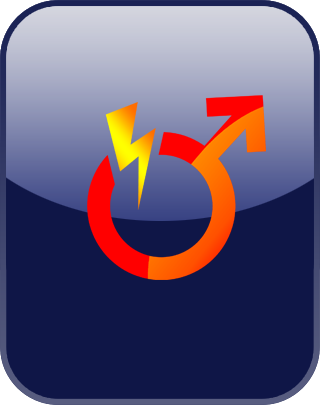Academically reviewed by Dr. Sabina Alispahić, Ph.D., professor of psychology
Reverse Sexism Test
Reverse sexism refers to prejudice, stereotyping, or discrimination against men on the basis of their gender. A controversial term, some scholars believe reverse sexism is not a meaningful concept since men have not historically been oppressed; others, on the other hand, follow the dictionary definition and contend that sexism can go both ways.
This test is based on psychologists Glick and Fiske’s Ambivalent Sexism Inventory, which is one of the most famous instruments for measuring sexism against women. In this case, the scales are simply flipped to reflect analogous stereotypes about men. Results indicate that a majority of both men and women continue to hold stereotyped views of men.
Where do you fall on the Reverse Sexism Test? For each of the following statements, indicate your level of agreement below.
Question 1 of 22
A real man should be daring and strong.
| Disagree | Agree |
NEXT
The IDR-RST© is the property of IDR Labs International. The original research into sexism against women was provided by Glick and Fiske. The original research is the property of Glick and Fiske and the Journal of Personality and Social Psychology. The IDR-RST© is not the equivalent of any instruments authored by Glick and Fiske.
The Reverse Sexism Test is a test, quiz, inventory, or instrument for measuring sex and gender stereotypes directed against men from the standpoint of liberal feminism, as well as adversarial discriminatory, prejudiced, or stereotypical beliefs about men that are prevalent among the general public. The Reverse Sexism Test does not address all possible forms of prejudice or discrimination against men and (in spite of its name) does not purport to take a side in the dispute over whether reverse sexism is a meaningful concept or should rather be referred to as simply prejudice, discrimination, or stereotypes about men. The original instrument, the Ambivalent Sexism Inventory, has been shown to take stock of statistically significant differences in the attitudes and prejudices that many men and women still have about women. The original research by Glick and Fiske is somewhat dated, yet modern versions of the inventory continue to be deployed in research contexts. The statistical analyses informing the test are broadly agreed to be scientifically valid.
Although all are designed to measure prejudiced or sexist attitudes, the IDR-RST© should not be confused with any tests or quizzes authored by Glick and Fiske or other research programs. Still, it should be noted that all of the aforementioned instruments are professionally designed personality tests (or quizzes) meant for measuring prejudiced views toward men. The IDR-RST is the property of IDRlabs International. The original research was provided by Glick and Fiske and published in the Journal of Personality and Social Psychology. The authors of this free online sexism quiz are certified in the use of various personality tests and have worked professionally with testing for years. The results of our online Reverse Sexism Test are provided "as-is" and should not be construed as providing professional or certified advice of any kind. For more on our online personality test, please consult our Terms of Service.
References
- Bohner, G., Ahlborn, K., & Steiner, R. (2010). How sexy are sexist men? Women’s perception of male response profiles in the Ambivalent Sexism Inventory. Sex Roles, 62, 568-582.
- Christopher, A. N., & Mull, M. S. (2006). Conservative ideology and ambivalent sexism. Psychology of Women Quarterly, 30, 223-230.
- Cross, E., and Overall, N. C. (2018). Women's attraction to benevolent sexism: needing relationship security predicts greater attraction to men who endorse benevolent sexism. Eur. J. Social Psychol. 48, 336–347. doi: 10.1002/ejsp.2334.
- Glick, Peter & Fiske, Susan. (1996). The Ambivalent Sexism Inventory: Differentiating Hostile and Benevolent Sexism. Journal of Personality and Social Psychology. 70. 491-512. 10.1037/0022-3514.70.3.491.
- Viki, G. T., Abrams, D., & Hutchison, P. (2003). The “true” romantic: Benevolent sexism and paternalistic chivalry. Sex Roles, 49, 533-537.

